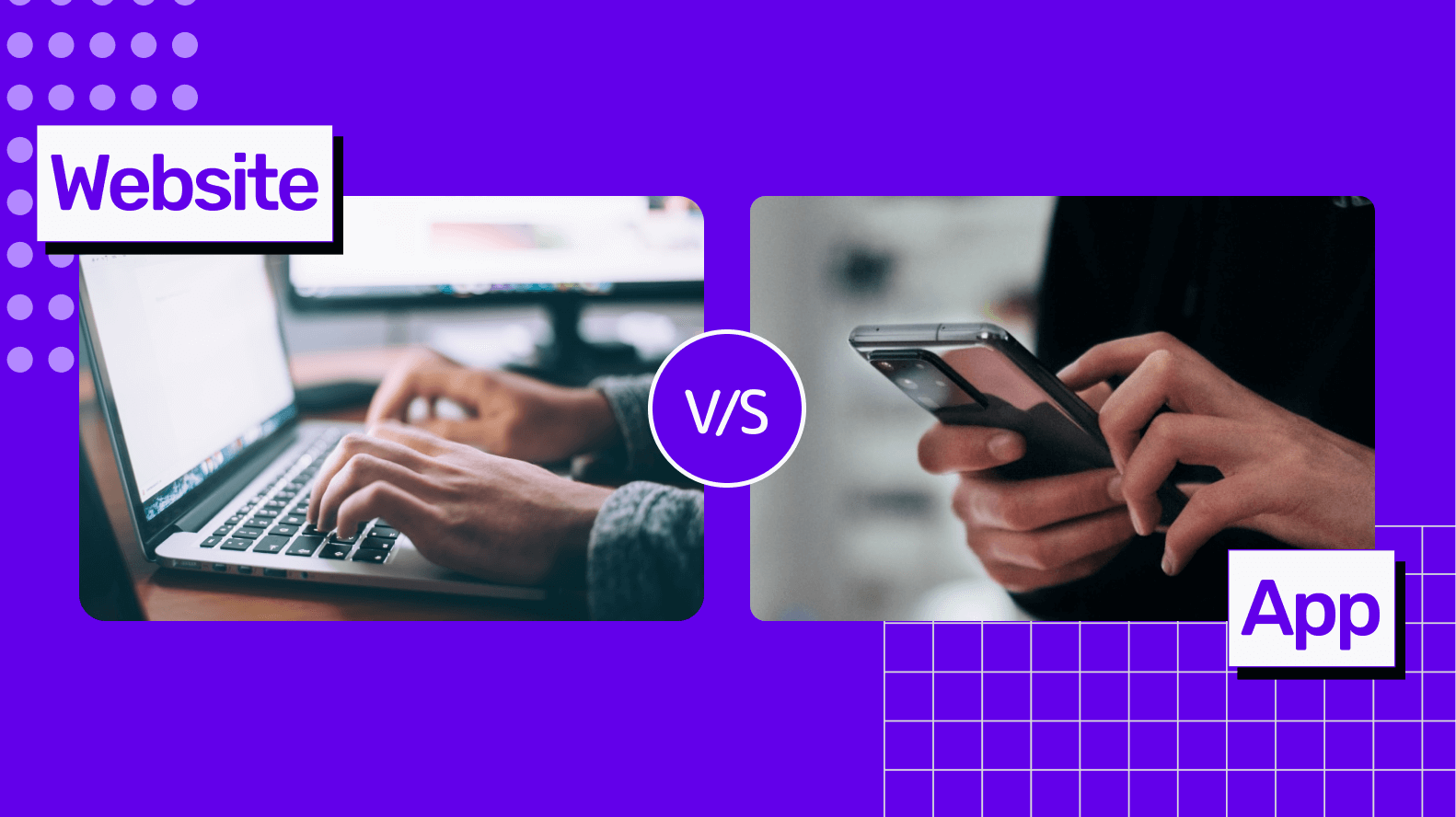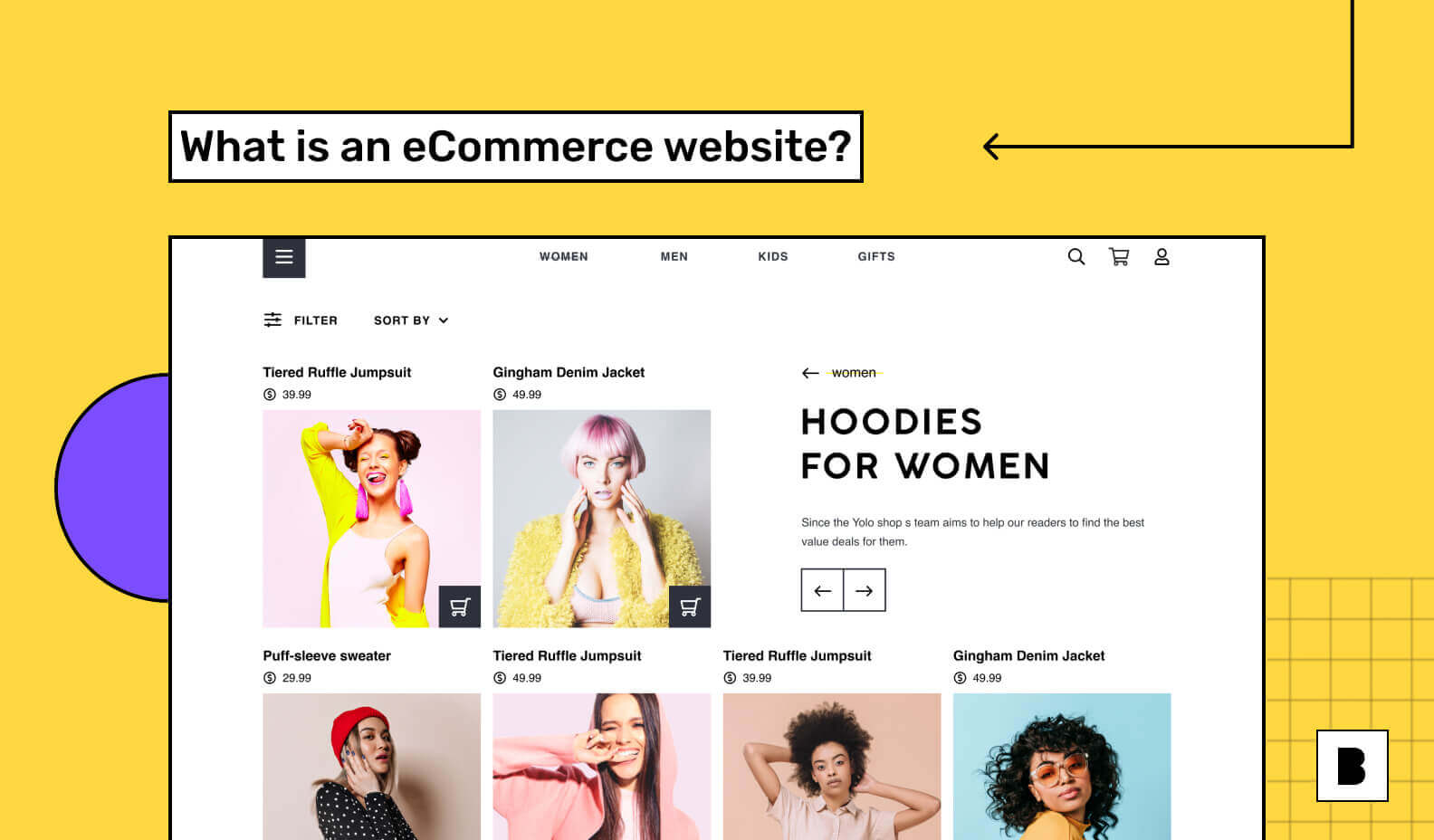Which digital platform should you place your bets on?
A fierce face-off has been brewing between the two heavy-weight digital platforms in the world right now, websites and apps.
If you’re a business wondering which side to place your bets on, step into the digital arena and let's find out which one fits your requirements better.
In the red corner...
According to Neil Patel, bounce rates are highest for sites that fail to be mobile-optimised.
Building your own website has become simpler thanks to hosted drag-and-drop services. You no longer need a degree in web design or any coding knowledge whatsoever to build a stunning, SEO-optimised website.
In the blue corner...
With over 3.5 million apps on Google Play and 1.63 million on the Apple App Store, apps are the rising stars of the digital universe.
142.6 billion apps were downloaded in 2022 and according to Statista, app revenue is forecast to grow from $475 billion in 2022 to a whopping $755 billion in 2027.
Creating mobile apps is now easier than ever, thanks to low-code and no-code app builders. With their drag-and-drop functionalities and pre-built components, you can go online in a matter of weeks.
Reasons to bet on apps
You’d want to place your bet on apps if you want a platform that prioritises user experience and supports advanced functionalities like personalisation and push notifications. If you’re an ecommerce business or a small business with a dedicated user base, you should go all-in on app. Why?
1 - Apps are faster
When compared to websites, apps offer a smoother and faster user experience. This is because they’re designed and optimised specifically for platforms like iOS and Android.
Unlike websites, apps don’t need to connect with remote servers and can store data locally on a mobile device, making data retrieval much faster.
Apps also have more control over the resource usage of the mobile device when compared to websites that solely rely on the browser’s resource allocation.
All this trickery essentially means users get to complete their actions much quicker on an app, resulting in a delightful experience.
2 - Apps offer better personalisation
Apps offer way more scope for personalisation than websites can ever dream of. The way apps work enables them to use a device’s native features to deliver a highly customised user experience.
With apps, it is also much easier to study and scrutinise user behaviour and offer users custom updates and promo offers.
Some other possibilities that come with mobile applications are tap-to-call/email, device alerts and instant and automatic app updates.
3 - Apps provide ease of sending notifications
These days, the click-through rates (CTR) for most brand activities like email marketing averages 2.3%, while push notifications boast a CTR of almost 40%.
Push notifications alone are reason enough to place all your bets on a mobile app. Thanks to this key feature, you can engage with consumers without seeming intrusive.
Yes, there are also web push notifications, too, but they’re not as seamless and effective as app notifications. This is because web push notifications rely on browsers and therefore, lack offline accessibility and personalisation.
On the other hand, app push notifications are deeply integrated into the operating system of the device, ensuring they’re delivered instantly.
4 - Apps work in offline mode
One of the main distinctions between mobile websites and apps is the latter's ability to work offline.
Although many apps require internet connectivity to perform critical tasks, they can still offer a basic level of functionality to mobile users while in offline mode.
Take, for example, Google Drive, which lets mobile users edit documents offline or Netflix, which lets you download shows to binge-watch later offline.
Reasons to bet on websites
You’d want to place your bets on websites if you don’t have an online presence and want to secure your brand’s digital baseline. The website provides you with a broader reach at a lower cost.
1 - Broader reach
Unlike apps, where you have to download them from specific mobile app stores and use them only on mobile devices, websites can be accessed across devices and platforms without drama. Your customers can visit your website by simply opening a browser.
It’s also worth noting that 93% of web browsing begins with a search engine like Google. Which essentially means there’s a greater chance of users stumbling upon your website.
As a result, a mobile-friendly responsive website gives you access to a much broader audience than an app.
2 - Search engine optimisation
Websites can be indexed by search engines like Google and Bing, increasing their chances of being discovered through organic search. According to a report, 53% of website traffic comes from organic searches.
You can easily optimise websites for search engines with relevant keywords and content to increase their visibility. Depending on the volume of the keyword, this could give you a direct line to thousands of new users. On the other hand, your audience is much smaller on app stores, even if you employ app store optimization (ASO) best practices.
3 - Faster development
Today, you can easily build a website by using pre-built templates, selecting the colour theme and logos and you are ready.
Apps, too, can be made in a matter of weeks, however, the overall development time for template-based websites is shorter, as you don’t have to worry about cross-platform compatibility or build different websites for different platforms.
4 - Support and maintenance
Websites are easier to maintain, as you just have to maintain one version of the website and don’t have to worry about different platforms.
You just implement changes once and the updates become active immediately across devices. Whereas app maintenance includes support for every platform and every device.
Website vs app: Let the battle commence
Now that you know both players inside and out, we’ll let this mighty brawl begin and see who emerges victorious on the other side.
Website | Apps |
Typically lower user engagement | Typically higher user engagement due to offline access and push notifications |
More cost-effective to develop and maintain | More expensive due to multi-platform development |
Limited personalisation capabilities due to browser constraints | Advanced personalisation capabilities due to device’s data access |
More discoverability via search engines | Less discoverability via mobile app stores |
Numerous revenue generation capabilitiesthrough online selling and advertising | More revenue generation avenues thanks to app monetization strategies |
Slightly faster to develop | Slightly slower to develop |
Round 1: User engagement
Websites enter the first round with easy maintenance and hassle-free updates, making them always look fresh as per the latest trends and providing users with fresh content.
Apps, on the other hand, retain users for longer by providing immersive and delightful experiences tailored to each user.
Apps roar through the user engagement round by providing features like push notifications and device-specific capabilities.
While websites attract more users from search engines, users tend to spend much more time within an app as they provide seamless user journeys. According to the report, app users spend 201.8 minutes per month shopping, and only 10.9 minutes per month for website users.
Round 2: Cost of development
Websites come strong in the second round by being cost-effective and generally more budget-friendly than apps.
The cost of developing a template-based website can start at $1,000 and go up to $10,000, depending on the features and functionality. However, custom websites built from scratch can go up to $100,000.
On the other hand, apps feel the heat in this round, as app development costs can vary wildly from $5,000 to $500,000. This variance mostly depends on the app's complexity and the type of features you want.
If you’re an entrepreneur or small business who wants a simple app with pre-built components, you have to pay anywhere from $5,000 to $50,000. However, if you wish to build an app with complex functionalities and custom features, you might have to shell out north of $100,000.
Although apps built with no-code app builders can be cheaper than custom websites, the website's lower entry point wins this round by being a more frugal option for businesses with budget constraints.
Round 3: Personalisation
This is an important round; some might consider it the make-or-break round of their betting decision.
In this round, apps land a strong punch against websites as they collect user data like shopping behaviour and preferences and use that data to provide product recommendations and relevant push notifications to users.
Though websites use cookies to offer some personalisation, they can’t match apps' data-gathering capabilities and, hence, the tailored user experience.
Think of ecommerce giant Amazon's website and app – the site can’t provide personalised recommendations and real-time engagement capabilities using device features like voice search, “view in your room” option and barcode scanning, whereas the app can.
Websites lose this crucial round as they lack the ability to deliver personalisation at any moment in the user's journey.
Round 4: Discoverability and reach
Search-engine-optimised websites have the potential to generate more traffic than apps because they can reach a larger target audience than is available on mobile app stores.
What also helps websites in their discoverability and reach is their cross-platform compatibility, making them much easier to access.
However, apps have a trick up their sleeve known as App Store Optimization (ASO), which is like Search Engine Optimization (SEO) but for app stores. ASO helps apps become more discoverable in app stores by looking for relevant keywords in the app description.
Although ASO helps apps stand in the ring a bit longer, it’s limited to app stores and not as effective as SEO in bringing new visitors to the platform. Therefore, websites take the lead in the discoverability round and balance out the score.
Round 5: Revenue generation
Good old websites can be relied upon to have more discoverability, but when it comes to the ability to earn more revenue, they start to lose ground.
Yes, with websites, you can generate revenue by following traditional methods like ecommerce sales, blogging or running affiliate links. But apps take revenue generation to the next level by opening new avenues.
Other than doing everything that websites do, apps offer diverse monetization models. For instance, paid apps, where users need to pay to download your app; in-app purchases, where you can sell premium features or virtual goods; and finally, freemium models, where you give your app away for free but sell advanced functionalities separately.
Even more, apps tend to live on mobile devices, constantly reminding your app users to use them and become paying members, whereas a website closes the moment the browser is closed and gets lost in oblivion.
Apps take this round of revenue generation simply by providing more routes to earn and having a longer shelf life on a device.
Round 6: Development speed
Depending on their complexity, websites can be up and running in hours, if not minutes. They show their agility by offering a much quicker route to go online than apps.
By using the pre-built templates from various website builder platforms, you can build a mobile-friendly website with all the essential features in a matter of days, but the website will not be yours to own.
While app development can take weeks or months as it includes building for both Android and iOS platforms, design prototyping and coding for different devices and screen sizes.
However, no-code app builders speed up the app development process. They do this by leveraging pre-built components and drag-and-drop interfaces, which can be used by anyone, regardless of their technical skills.
Although websites win the round of development speed by the slightest of margins, apps do show that quality often trumps speed.
And the final bell rings. This brings us to the end of this nerve-wracking match.
Website vs App: The result
So, the moment of truth (drumroll, please)...
With three well-deserved wins for each platform…
IT’S A TIE!
You just can’t call it – websites and apps are both important! And it depends on your business and your brand which platform is more important to you.
For example, local businesses with a dedicated customer base could skip building a website and prioritise building an app instead.
A local salon might need an app solution for appointment booking or a restaurant could need a quick solution for table booking – similar scenarios might apply to doctors, spas and gyms.
In these circumstances, there’s little advantage to developing a website over an app. Apps solve these sorts of business problems quickly and efficiently – that’s one of their many advantages.
However, if you’ve got a business where you need to educate your users first or your primary goal is to attract organic search traffic, then websites give you an upper hand.
For example, a software as a service (SaaS) company should focus on a website first, as they’ll be able to attract new customers and educate them through TOFU, MOFU and BOFU content.
A non-profit organisation or a News outlet can totally skip the app, as the main focus is to deliver information to the maximum number of people.
In such circumstances, although an app can be helpful, they need a website to cover their baseline first.
Conclusion: Embrace the multi-platform reality
We know you’re disheartened that the nail-biting match turned into a tie. But it's a fact that there is no single superior choice and it mostly depends on the use cases where the exact advantage of a platform lies.
And that's the beauty of it. You, as a business owner, get more options.
But if you’re still torn between a website and an app and think your use case measures both options equally, then why not consider both?
Make your business a multi-platform reality and get them both with Builder.ai’s Studio Store. With Studio Store, you get an all-in-one business kit that includes a website and an app, plus maintenance for both platforms.
With Studio Store, you get the best of both worlds and can go online in as little as two weeks.
If this sounds good, then Book a Studio Store demo 👈 today and get a quote!
Want to start your app project with us?
Book a demoSpeak with one of our product experts today.
By proceeding you agree to Builder.ai’s privacy policy and terms and conditions

Gaurav is the SEO Content Writer at Builder.ai. Being an Engineer and Marketing MBA, he has a knack for converting technical jargon into marketing content. He has 8+ years of experience creating content and designing marketing campaigns that drive organic growth for B2B companies and tech startups.












 Facebook
Facebook X
X LinkedIn
LinkedIn YouTube
YouTube Instagram
Instagram RSS
RSS


